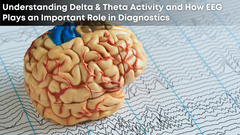Unraveling the Complexity of Autoimmune Encephalitis: Symptoms, Causes, and Diagnosis
What is Autoimmune Encephalitis?
Autoimmune encephalitis is a condition where the body's immune system mistakenly identifies proteins in the brain as foreign invaders and launches an attack against them. This immune response leads to inflammation of the brain, affecting its normal functioning. The specific proteins targeted by the immune system vary, resulting in different forms of autoimmune encephalitis.
Symptoms of Autoimmune Encephalitis:
The symptoms of autoimmune encephalitis can be diverse and may manifest differently in each individual. Some common symptoms include:
> Cognitive Dysfunction: Patients may experience memory loss, confusion, and difficulties with concentration and attention.
> Psychiatric Symptoms: Behavioral changes, personality alterations, mood swings, hallucinations, and psychosis can occur.
> Seizures: Seizures are a common manifestation of autoimmune encephalitis, varying in severity and frequency.
> Movement Disorders: In some cases, individuals may exhibit abnormal movements, such as tremors, ataxia, or dystonia.
> Autonomic Dysfunction: Dysregulation of the autonomic nervous system can lead to symptoms like changes in heart rate, blood pressure, and body temperature.
> Sleep Disturbances: Insomnia or excessive sleepiness may occur as a result of autoimmune encephalitis.
Understanding the diversity of symptoms is crucial, as the condition often goes undiagnosed or misdiagnosed due to its varied clinical presentation.
What Causes Autoimmune Encephalitis?
The precise causes of autoimmune encephalitis are not fully understood, but several triggers have been identified:
> Infections: Viral infections, such as herpes simplex virus (HSV), can trigger an autoimmune response, leading to encephalitis.
> Tumors: In some cases, tumors, especially teratomas (ovarian tumors), can produce proteins that provoke an immune response against the brain.
> Genetic Predisposition: Certain genetic factors may contribute to an increased susceptibility to autoimmune encephalitis.
> Unknown Triggers: In many cases, the specific trigger remains unidentified, and the immune response against the brain appears to be spontaneous.
What Are the Risk Factors?
While autoimmune encephalitis can affect individuals of any age, gender, or background, certain risk factors may increase the likelihood of developing the condition:
> Age: Some types of autoimmune encephalitis are more prevalent in specific age groups. For instance, anti-NMDA receptor encephalitis is often diagnosed in young adults.
> Gender: Certain forms of autoimmune encephalitis may show a gender bias, with some types being more common in females.
> Previous Infections: A history of viral infections, particularly those affecting the central nervous system, may elevate the risk of developing autoimmune encephalitis.
Prevention Against Autoimmune Encephalitis:
Preventing autoimmune encephalitis often involves minimizing the risk factors associated with its development. Some preventive measures include:
> Vaccinations: Staying up-to-date on vaccinations can help prevent viral infections that might trigger autoimmune encephalitis.
> Prompt Treatment of Infections: Timely and appropriate treatment of viral infections, especially those affecting the central nervous system, can reduce the risk of autoimmune encephalitis.
> Genetic Counseling: Individuals with a family history of autoimmune disorders may consider genetic counseling to understand their predisposition and take preventive measures.
> Regular Health Check-ups: Regular medical check-ups can help identify and address potential health issues before they escalate.
How Clarity Medical’s EEG Can Diagnose Autoimmune Encephalitis?
Early and accurate diagnosis of autoimmune encephalitis is crucial for initiating prompt and effective treatment. Clarity Medical's Electroencephalogram (EEG) plays a vital role in diagnosing autoimmune encephalitis by monitoring the electrical activity of the brain. Here's how Clarity Medical's EEG aids in the diagnosis process:
> Detection of Abnormal Brain Activity: The EEG records the electrical signals produced by the brain. In autoimmune encephalitis, abnormal patterns of electrical activity can be detected, helping clinicians identify the presence of neurological dysfunction.
> Monitoring Seizure Activity: Autoimmune encephalitis often presents with seizures. The EEG allows for continuous monitoring of seizure activity, aiding in both diagnosis and ongoing management.
> Assessment of Cognitive Function: Changes in cognitive function are common in autoimmune encephalitis. The EEG can provide insights into cognitive abnormalities by recording patterns associated with memory, attention, and other cognitive processes.
> Tracking Treatment Response: Clarity Medical's EEG is valuable in tracking the response to treatment. As the inflammation subsides and the brain's function improves, corresponding changes in the EEG can be observed.
Conclusion:
Autoimmune encephalitis is a challenging neurological condition that requires a multidisciplinary approach for diagnosis and management. Understanding the symptoms, causes, and risk factors is crucial for early identification and intervention. With advancements in diagnostic technologies, such as Clarity Medical's EEG, healthcare professionals can achieve more accurate and timely diagnoses, leading to improved outcomes for individuals affected by autoimmune encephalitis. As research in this field continues to progress, the hope is to develop even more effective preventive strategies and treatments for this complex disorder.












